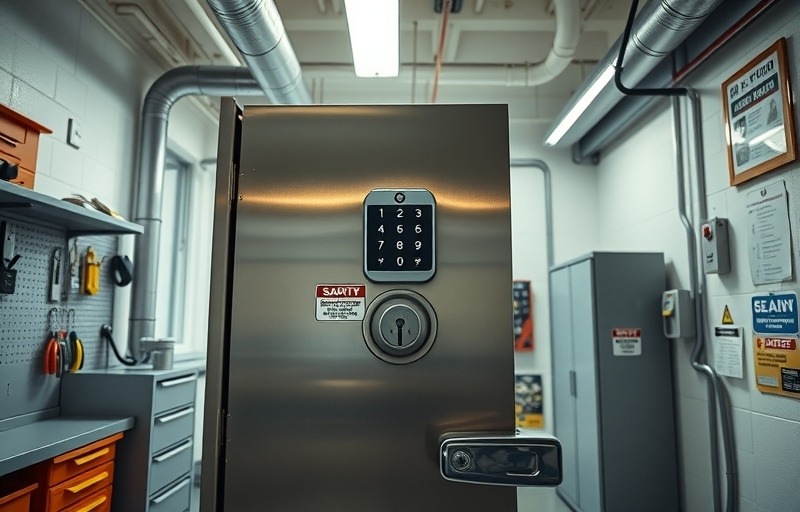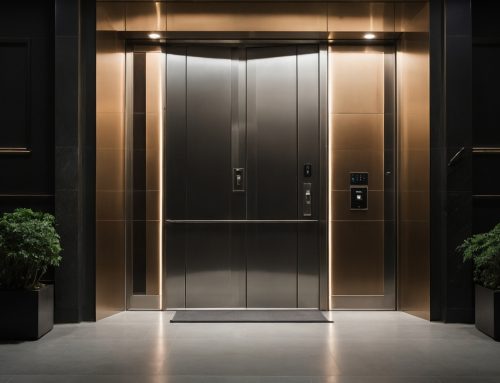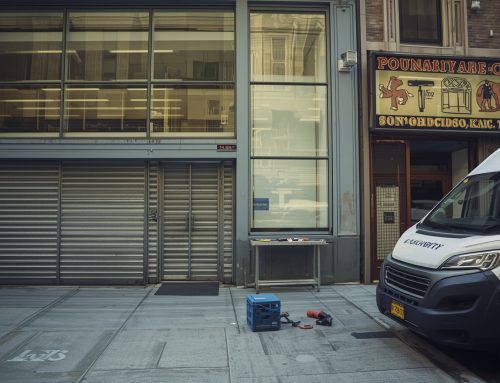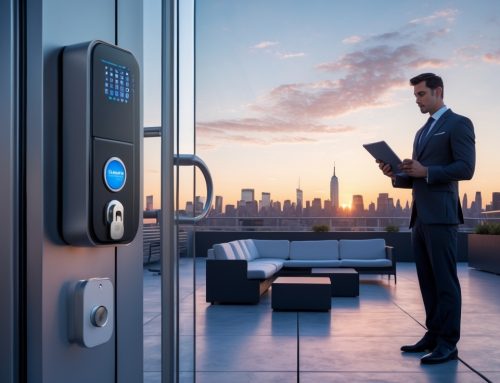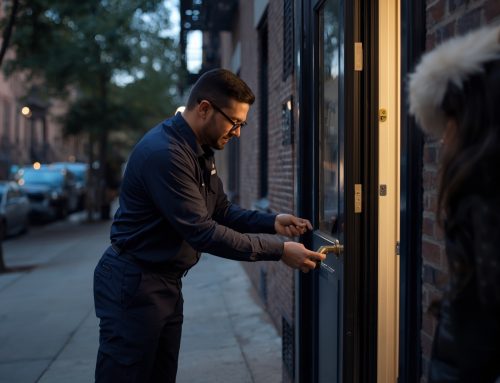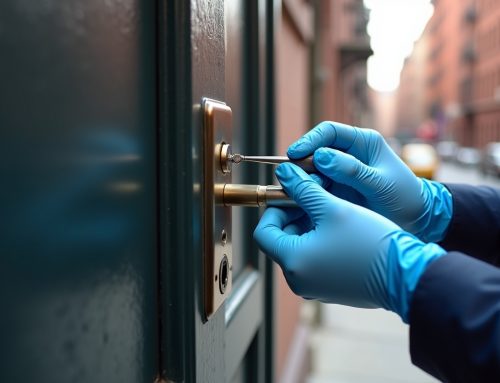When it comes to securing building maintenance rooms in New York City, choosing the right lock is crucial. Best Lock Options for NYC Building Maintenance Rooms aren’t just about durability—they must also meet strict safety codes and resist tampering. Have you ever wondered which locks offer the best balance of security, convenience, and compliance for high-traffic buildings? At iLocksmiths, we’ve spent over 11 years helping NYC businesses protect their properties with top-tier commercial locksmith solutions.
Smart deadbolts, high-security cylinder locks, and electronic keypad systems are among the best choices for NYC maintenance rooms. Brands like Mul-T-Lock, Medeco, and Schlage dominate the market with their advanced security features. This article breaks down the top lock options, their benefits, and why they’re ideal for commercial maintenance areas in a city that never sleeps.
But these aren’t the only locks worth considering. Security expert Marc Tobias, author of “Locks, Safes, and Security,” emphasizes the importance of layered protection in commercial settings. So, let’s dive into the most trusted lock systems that keep NYC’s maintenance rooms secure—one lock at a time.
Understanding the Importance of Secure Locks in NYC Building Maintenance Rooms
Maintenance rooms in NYC buildings house critical systems like HVAC, electrical panels, and plumbing controls. These areas must remain secure to prevent unauthorized access that could lead to costly damage or service disruptions. In a city with constant foot traffic and multi-tenant properties, the risk of intrusion is significantly higher. Strong, tamper-resistant locks are essential to safeguard these vital infrastructures.
Failing to secure maintenance rooms can also lead to serious legal and insurance consequences. Property owners may face liability if unauthorized access results in injury or property damage. Insurance claims could be denied due to negligence, increasing financial exposure.
Older buildings in NYC pose additional challenges. Many have outdated locking mechanisms that don’t meet modern security standards. Upgrading to high-security systems is not just smart—it’s necessary. With so many people coming and going, access control becomes a top priority.
For professional solutions, consider working with a trusted commercial locksmith. They understand the unique demands of NYC properties. You can also explore our Brooklyn service area for localized support. Investing in the right locks today protects your building’s future.
Key Security Requirements for Maintenance Room Locks
A secure maintenance room lock must offer high resistance to picking and bumping. These features prevent unauthorized access and reduce tampering risks. Key control is equally vital, ensuring only authorized personnel can duplicate keys. Restricted keyways and patented key systems enhance this control significantly.
Locks must also comply with NYC building codes and fire safety regulations. This includes proper egress functionality and fire-rated hardware. Non-compliance can lead to fines or safety hazards, especially in emergency situations.
Audit trails and access logs are critical for accountability. They track who enters and exits the room, along with timestamps. This data helps identify security breaches and supports internal investigations. Electronic locks with logging capabilities offer superior control and transparency.
For added protection, consider integrating your locks with security cameras. This combination strengthens surveillance and deters unauthorized entry. If you’re managing a commercial property, our commercial locksmith services provide tailored solutions for high-security environments.
Choosing the right lock system ensures safety, compliance, and operational efficiency.
Types of Locks Suitable for Maintenance Rooms
Mechanical locks like deadbolts and mortise locks offer solid security and durability. Deadbolts are simple, cost-effective, and easy to install. Mortise locks, while more complex, provide enhanced strength and are ideal for high-traffic areas. However, both require physical keys, which can be lost or duplicated.
Electronic locks bring convenience and control. Keypad locks eliminate the need for keys and allow quick access changes. Smart locks offer remote access, activity logs, and integration with security systems. RFID systems are excellent for managing multiple users and tracking entry. These options reduce the risk of unauthorized duplication but rely on power or batteries.
Hybrid systems combine the reliability of mechanical locks with the flexibility of electronic features. They ensure access even during power failures and offer layered security. These systems are ideal for NYC maintenance rooms needing both strength and smart access.
For commercial-grade solutions, explore our commercial locksmith services. Need help choosing the right lock? Reach out through our contact page for expert guidance.
Best Lock Brands and Models for NYC Maintenance Rooms
When securing NYC maintenance rooms, certain lock brands consistently outperform the rest. Medeco’s Maxum Deadbolt offers exceptional resistance to picking and drilling. Mul-T-Lock’s Hercular Deadbolt is another top-tier choice, known for its high-security features and patented key control. Schlage’s B660P series delivers commercial-grade durability at a more affordable price point. ASSA ABLOY’s Sargent 10 Line Cylindrical Locks provide robust protection and long-term reliability.
In terms of performance, Medeco and Mul-T-Lock lead with advanced key systems and hardened steel inserts. Schlage, while slightly less expensive, still offers solid protection for lower-risk areas. ASSA ABLOY models are ideal for facilities requiring both security and heavy-duty usage.
Durability tests show Medeco and ASSA ABLOY locks withstand extreme wear and forced entry attempts. Mul-T-Lock models also score high in longevity, making them ideal for high-traffic maintenance rooms. For cost-conscious buyers, Schlage provides a balance between price and performance.
For professional installation or upgrades, explore our commercial locksmith services. Need help choosing the right lock? Contact our experts through the contact page for personalized guidance.
Key Control and Access Management
Maintaining strict control over who can access maintenance rooms in multi-tenant buildings is essential. Without clear policies, unauthorized entry can lead to theft, vandalism, or safety hazards. Implementing a master key system ensures authorized personnel can access multiple areas without carrying numerous keys. This streamlines operations while maintaining security.
Restricted keyways add another layer of protection. These keys can’t be duplicated without proper authorization, reducing the risk of unauthorized copies. For added control, many property managers now turn to digital access control systems. These systems allow real-time monitoring and can log every entry and exit. Integration with building management software enhances efficiency and response time.
Digital systems also support remote access, temporary codes, and user-specific permissions. This flexibility is ideal for managing vendors, contractors, or rotating staff. For buildings in high-traffic areas like Park Slope or Queens, these solutions offer unmatched control and convenience. Investing in advanced access management not only protects property but also builds tenant trust.
Installation Considerations and Best Practices
Older NYC buildings often present unique challenges during lock installation. Begin by assessing the doorframe and existing hardware. Remove outdated components carefully to avoid damaging the structure. Next, choose a lock compatible with the door’s material and thickness. For retrofitting, consider high-security deadbolts or smart locks that fit standard cutouts.
Ensure the strike plate aligns perfectly with the latch. Misalignment can weaken security and reduce durability. Reinforce the frame with longer screws and metal plates for added strength. Use anti-drill and anti-pick features to boost tamper resistance. Weatherproofing is also essential, especially in exposed maintenance areas.
Always test the lock multiple times after installation. If resistance is felt, adjust immediately. For professional help, consult a trusted commercial locksmith who understands NYC’s building codes. They can recommend the best solutions for older infrastructure.
Additionally, explore services in your area, such as Park Slope locksmith experts, for fast and reliable support. Proper installation ensures long-term performance and peace of mind.
Maintenance and Periodic Security Audits
Regular lock maintenance ensures long-term reliability and security. Begin by applying a graphite-based lubricant every six months. Avoid oil-based products, as they attract dust and debris. Inspect locks monthly for signs of rust, wear, or misalignment. Tighten any loose screws and test keys for smooth operation.
Schedule security audits at least twice a year. During these audits, assess all entry points and verify access control systems. Consider lock rekeying annually or immediately after staff changes. This prevents unauthorized access and strengthens overall building security.
If a key is lost or an access code is compromised, act fast. Immediately disable the code or rekey the affected locks. Never delay, as this creates a serious vulnerability. Keep a log of all issued keys and access credentials to track usage.
For professional support, consult a trusted commercial locksmith to handle complex systems. You can also reach out via our contact page for emergency assistance or scheduled service. Proactive maintenance and timely audits are essential for safeguarding your maintenance rooms.
Cost Analysis and Budget Planning
High-security locks like electronic keypad systems or smart locks can cost between $150 and $500 per unit. Traditional deadbolts, on the other hand, range from $40 to $100. Installation fees vary, typically falling between $75 and $200 depending on complexity. While smart locks have a higher upfront cost, they offer enhanced control and reduce long-term maintenance. Mechanical locks may seem cheaper initially but often require more frequent servicing or replacement.
When planning your budget, consider the total cost of ownership. Smart systems may integrate with security cameras, offering added value. Property managers should also factor in emergency access needs and potential lockouts. Investing in durable, tamper-resistant locks reduces future repair costs and liability risks.
To stay within budget, prioritize high-traffic areas for premium locks. Use standard locks in low-risk zones. Request quotes from multiple providers and compare service warranties. For tailored advice, reach out to our locksmith experts who understand NYC building codes and security demands. Smart budgeting ensures both safety and cost-efficiency over time.
Legal and Regulatory Compliance in NYC
New York City enforces strict building codes and fire safety regulations. Maintenance rooms must have secure, fire-rated doors with compliant locking mechanisms. These locks must allow emergency egress without keys or tools. Additionally, rooms storing hazardous materials require enhanced access control to prevent unauthorized entry.
ADA compliance is also critical. Maintenance room entrances must be accessible to individuals with disabilities. This includes proper door width, handle height, and unobstructed access paths. Failure to meet these standards can lead to fines and legal action.
Unauthorized access poses serious liability risks. If someone enters a maintenance area and gets injured, the property owner could face lawsuits. Security breaches may also result in equipment damage or service disruptions. Installing high-security locks and monitoring systems is essential.
To ensure full compliance, consult with a professional commercial locksmith. They can recommend solutions tailored to NYC regulations. For ongoing support or urgent upgrades, reach out through our contact page. Staying proactive protects your property and avoids costly penalties.
Frequently Asked Questions (FAQs)
For high-traffic maintenance rooms, heavy-duty commercial-grade deadbolts or electronic keypad locks work best. Smart locks can be secure if they include encryption, audit trails, and remote access control. In NYC, locks should be rekeyed or replaced every 12 to 24 months, or immediately after a security breach. Local codes require commercial buildings to use fire-rated and ADA-compliant locking systems. Yes, you can integrate maintenance room locks with your building’s access control system for centralized management. If a key is lost or stolen, rekey the lock immediately and update access permissions. Choose mechanical locks for simplicity and durability; opt for electronic locks if you need advanced features. Some locks are built to resist extreme weather and vandalism, ideal for exposed or high-risk areas. To restrict access, use keycard systems or biometric readers that log entry data. For large buildings, implement a master key system and maintain a digital log of all access points. For expert help, contact our commercial locksmith team or visit our Park Slope service area page for local support.

